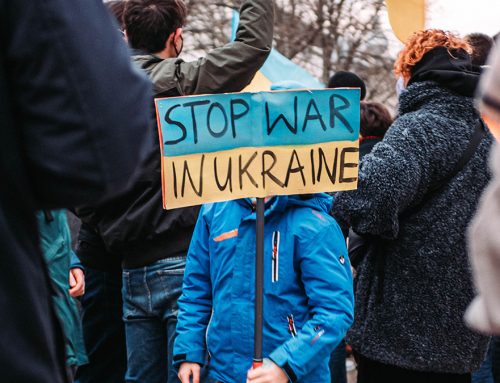“The world needs a mother, and when it finds one it rests at her feet.”
I have absolutely no idea who spoke these words, but I recall seeing them in a short film some years ago and they stayed with me. I loved the sense of sitting at the feet of your mother, listening to her, and learning from her. It is a dynamic that I have enjoyed with her and other women in my life – be they familial, friendly, or professional. In all my relationships I remain, in many ways, a child at heart – eagerly listening, and always learning.
As part of the CDPB Fellowship Programme, we as Fellows are challenged on a regular basis to think about the modes of leadership that we employ, to examine the Spirit of Possibility within us, and to lead with that same spirit. Upon seeing this evening that Professor Monica McWilliams is set to release a book on her life at the end of this month, I was given cause to pause and to reflect. Professor McWilliams has, for me, led consistently with that same Spirit of Possibility and the principles that we have been learning over the past few months. I believe that she boldly embodies that which the CDPB Fellowship Programme seeks to build up within us.
Some seven years ago I was planning a book which would become self-published two years later. It was a series of reflections from figures of note who came through Queen’s University Belfast (QUB) over the years, with a focal point being the Catholic Chaplaincy at QUB. Having graduated from Queen’s myself in 2009, the Catholic Chaplaincy was of importance to me, and I wanted to gain a sense of how attitudes and perspectives had changed over the years. I dutifully set out to request interviews with several people. Surprisingly, given that this was a fledgling effort, few turned the request down. One contributor was Monica McWilliams.
I was amazed when she agreed to meet with me and to contribute to the work. For the duration of our interview, I recall that my style of asking questions was clumsy and scattered. On one level I am conscious that it was an amateur effort, and on another I recall sitting and listening in awe to Monica speak so candidly about her time at Queen’s and then later in life. Questions did not come easily because I just wanted to hear more and more!
Right from the get-go we see that Monica’s contribution to peacebuilding efforts and conflict resolution at home and around the world has been driven by patience and persistence. If you consider that the Northern Ireland Women’s Coalition (NIWC), co-founded in April 1996 by McWilliams, had just six weeks to get elected to the Northern Ireland Forum in 1996, the fact that it did so, demonstrates an important lesson in persistence. Despite possessing humble beginnings, McWilliams’ achievement of securing two seats at the talks table ensured an essential voice in advocating the inclusion of women in public life, special initiatives for young people affected by the conflict, recognition of the links between reconciliation and mixed housing and integrated education and more. They engaged in talks with Sinn Fein when others would not, because in her words, ‘nobody should be left out in the cold’. If that is not keeping with the Spirit of Possibility, then I do not know what is! The NIWC would go on to successfully gain two seats in the first Northern Ireland Assembly in 1998 (one for Monica McWilliams in South Belfast and the other Jane Morrice in North Down).
In her interview with me Monica spoke so powerfully about the need to engage with human relationships which is something that we discuss often as part of the CDPB Fellowship Programme.
If we consider the implications of the example set by Monica McWilliams (and the Northern Ireland Women’s Coalition) we can ascertain a paradigm for this human engagement. Start with a perspective that recognises the “Other” as a human and begin to relate on a human level. The political differences can wait! Get to know the other, see what “makes them tick” and establish a relationship of mutual interest, and importantly, trust. Remember that empathy builds a firm foundation. Then, in addressing the variances between individuals (be they political, social, economic, etc.), doing so with patience, and persistence will ensure that should we fall at any hurdle, we will pick ourselves up again and carry on. If we encounter someone that will not engage or simply will not listen (something the NIWC had to endure with many of the male dominated political parties!), remember that with patience we are better equipped to press on.
This is a valuable lesson I have learned, seven years after ‘sitting at the feet’ of Monica McWilliams, eagerly listening and learning. However, in so doing, she has also presented me with a challenge.
In her reflections, Monica spoke about the fact that when something is written and published, this is all well and good. However, it most importantly needs to have some practical application. So, the challenge for me as part of the Fellowship Programme is to ask myself: what is the practical application of all that I am learning? This is something that all the Fellows will have to ask themselves. If I am learning about the Spirit of Possibility, leading with the heart, head and the hand, and learning to lead with Trust and Empathy, then there must be a practical application. The answer to this, is for another day, but one that I will absolutely return to. Today’s contribution is about Monica.
I could have focused on the backward approach of many male political figures that sneered at the Women’s Coalition and made jibes at them. I could have focused on the male MLAs who referred to her and her colleagues as dogs and cows and would make such sounds when she was making a speech in the chamber. However, Monica McWilliams has not allowed herself to be defined or deterred by this degrading, cowardly and small-minded behaviour. She understands that that which she was standing up for, and speaking out for, was, and is, bigger than their small minds. She is more respected than they ever will be.
For the meantime, I simply wish to spend a moment paying tribute to the contribution Monica McWilliams has made to peacebuilding and conflict resolution at home and further afield. McWilliams is an academic, a Human Rights Commissioner, a negotiator in the talks preceding the Good Friday Agreement, an MLA, a teacher and stalwart defender of peace, liberty, and human rights.
My tip, particular to the men reading this, is to find a ‘mother’ and sit at her feet. You will learn more than you could ever anticipate. As the CDPB Fellowship Programmes continues with attending the TedxStormont Countdown to COP26 on Thursday, I am certainly looking forward to sitting, listening eagerly and deeply, and above all, continuing to learn.
This is where the impact of engaging compassionately with our human relationships, with trust and empathy, and with patience and persistence and a Spirit of Possibility gets us. This is the indelible mark that Monica continues to make on the world. She does not seek accolade or honour. She does not seek glory. Rather, she seeks a peaceful and just society – one in which nobody is left out in the cold. Truly a life well lived, these are the lessons Professor Monica McWilliams has unknowingly taught me about leadership, and I am ever thankful for them.
Stand Up, Speak Out: My Life Working for Women’s Rights, Peace and Equality in Northern Ireland and Beyond by Monica McWilliams will be released on November 18th 2021.
Dominic O’Reilly



